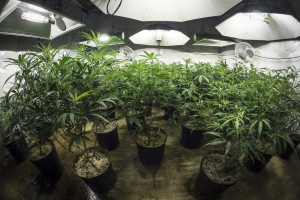 With the ever-growing support for legalized medical and recreational marijuana, it is hard to fathom that some states may never legalize one or the other (or both). But, there are 14 states that may never do so. It isn’t the money, per se, but it has a lot to do with politics.
With the ever-growing support for legalized medical and recreational marijuana, it is hard to fathom that some states may never legalize one or the other (or both). But, there are 14 states that may never do so. It isn’t the money, per se, but it has a lot to do with politics.
The fourteen states are: Alabama, Georgia, Indiana, Iowa, Kentucky, Kansas, Louisiana, North Carolina, South Carolina, Tennessee, Texas, Virginia, West Virginia, and Wisconsin. States that tend to lean Republican are less likely to legalize recreational marijuana – and these states historically vote Republican. Conversely, the Republican Party tends to take a more conservative approach to the legalization of marijuana, meaning they’re more likely to side with the federal government’s stance of the drug being illegal. This isn’t to say that red states don’t legalize marijuana at all; but there tends to be a pretty clear dichotomy between legal states (which are mostly blue) and non-legal states (which are mostly red).
So, if you are in a Republican-leaning state does this mean that you will never have legalized recreational marijuana? No – but there is a much less chance than if you lived in a Democratic state. But this isn’t the only reason that these states will not legalize marijuana. The lack of I&R laws (Initiative & Referendum) is also a major reason. The I&R process refers to the method of allowing residents within a state to vote on a piece of legislation to approve it or reject it. An initiative allows citizens within a state to propose or initiate a statute or constitutional amendment, whereas a referendum allows citizens to refer a statute passed by a state’s legislature to the ballot so voters can enact or repeal the measure. Within the U.S., 26 states allow for the I&R process, while the remaining 24 states lack the right to I&R. Of the 24 states that lack the I&R right, 10 have approved medical marijuana, leaving the 14 states you see above to make up the remainder.
In laymen’s terms, unless a lawmaker introduces a bill to legalize it, there is little chance of it getting on a ballot.

 Right now only about 5% of the US population can legally light up recreational marijuana. Come Tuesday, the number night jump to over 25%.
Right now only about 5% of the US population can legally light up recreational marijuana. Come Tuesday, the number night jump to over 25%.  As Arizona,
As Arizona,  With many states offering up legalized recreational or medical pot on their ballots this week, nationwide
With many states offering up legalized recreational or medical pot on their ballots this week, nationwide  Of all the states that have legalized pot of some form on the ballot, New Jersey puzzles some. The vastly Democratic state with a Republic governor may soon has legalized pot. While this state could use the extra tax benefits that legalized pot brings – is the state ready?
Of all the states that have legalized pot of some form on the ballot, New Jersey puzzles some. The vastly Democratic state with a Republic governor may soon has legalized pot. While this state could use the extra tax benefits that legalized pot brings – is the state ready?




